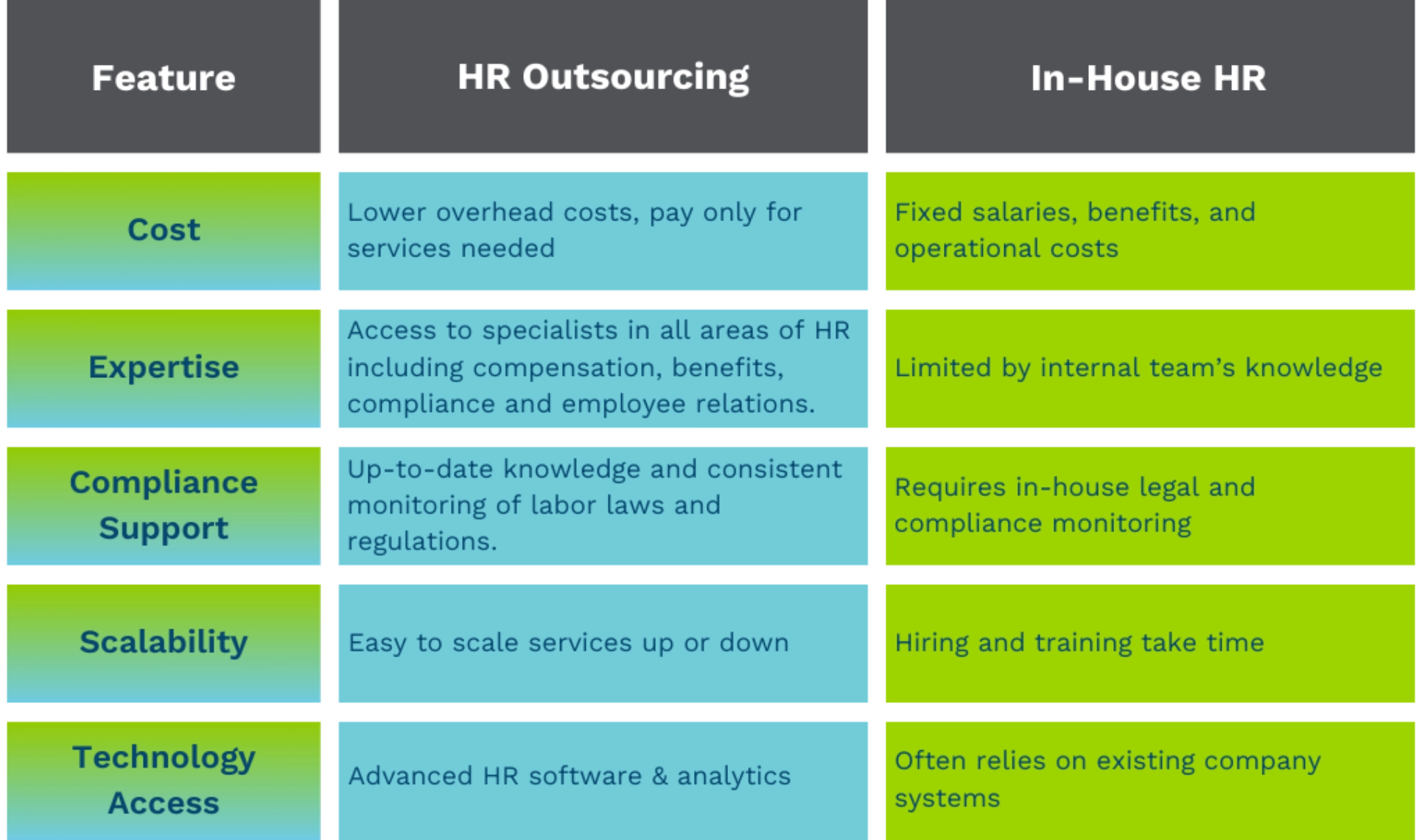Defining HR Outsourcing
HR outsourcing is the practice of delegating HR functions to an external provider instead of handling them in-house. This allows businesses to focus on core operations while ensuring HR tasks are managed efficiently, compliantly, and cost-effectively.
Growing and mid-sized organizations can benefit from HR outsourcing, as it provides expert support without requiring a full in-house HR team.
Top Benefits of HR Outsourcing
Cost Savings Without Compromising Quality
Hiring and maintaining an in-house HR team can be expensive. Outsourcing reduces overhead costs by eliminating expenses related to full-time salaries, benefits, and training. Instead, businesses pay only for the HR services they need, allowing for better budget allocation.
Access to HR Experts & Advanced Technology
HR outsourcing firms provide specialized knowledge and industry-leading tools, including:
- Compliance tracking systems
- Total Rewards systems and data
- Employee workforce analytics
With these tools, businesses gain insights and efficiencies that would be costly to maintain in-house.
Enhanced Compliance & Reduced Risk
Employment laws are constantly evolving. HR outsourcing keeps businesses compliant by ensuring policies align with local, state, federal, and industry regulations. This helps prevent:
- Costly lawsuits and fines
- Wage and hour violations
- Employee misclassification issues
Scalability for Growing Businesses
HR needs evolve as businesses expand. Outsourcing offers flexibility, allowing companies to scale HR support up or down as needed—without the burden of hiring or layoffs.
More Time to Focus on Core Business Priorities
HR functions can be time-consuming. Outsourcing allows leaders to redirect their focus to business growth while HR experts handle people operations and employee engagement and program management.
When Should a Business Consider HR Outsourcing?
While HR outsourcing can benefit any business, it's especially useful in the following situations:
You Don’t Have an In-House HR Team
Many businesses rely on an office manager or a member of the leadership team to handle HR, but this can lead to compliance risks and inefficiencies. Outsourcing fills the gap with specialized HR support.
Your Business is Growing Quickly
If you’re scaling operations, hiring rapidly, or entering new markets, HR outsourcing can provide the structure and expertise needed to support growth.
HR Compliance is Becoming a Challenge
If keeping up with employment laws feels overwhelming or you’re worried about compliance issues, an outsourced HR provider ensures policies align with legal requirements.
You Need to Improve HR Processes & Efficiency
If HR tasks are taking too much time away from leadership or HR responsibilities are falling behind, outsourcing streamlines processes and introduces tools that improve workflow.
How to Get Started with HR Outsourcing
Assess which HR functions you need support with—payroll, compliance, recruiting, benefits administration, employee relations or full-service HR management.
Step 1: Identify Your HR Needs
Assess which HR functions you need support with—payroll, compliance, recruiting, benefits administration, employee relations or full-service HR management.
Step 2: Research HR Outsourcing Providers
Look for an HR partner with multi-industry experience, scalable solutions, and compliance expertise.
Step 3: Develop a Transition Plan
Work with your HR provider to seamlessly integrate outsourced services into your business operations.
Step 4: Monitor & Optimize
Regularly assess your HR performance metrics to ensure outsourcing meets your business needs.
